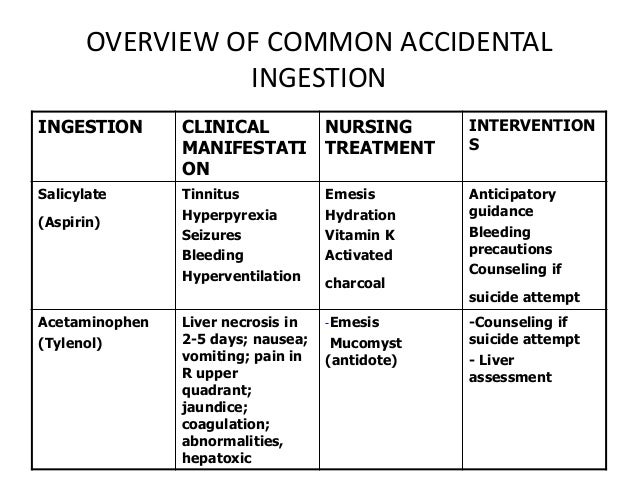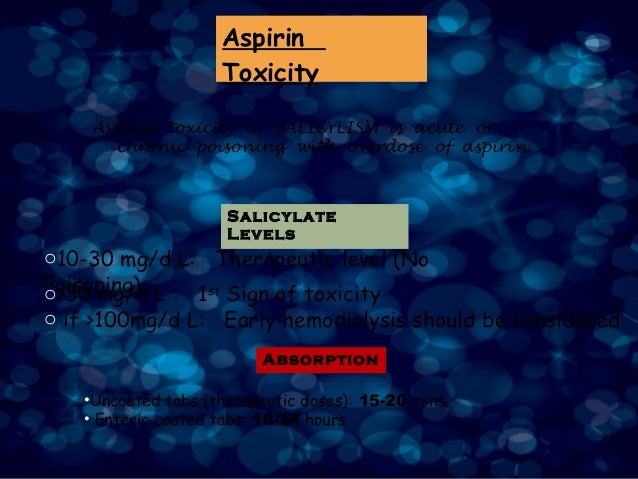

Clinical or laboratory features of toxicity.The principles of assessment of a potential salicylate overdose include: Late - Respiratory acidosis and high anion gap metabolic acidosis.


Accidental overdose from aspirin is very uncommon in the paediatric population, but methyl salicylate overdose is associated with significant toxicity even with very small ingestions.Infant teething gels (including bongela, sedagel).For specific details please contact Poisons Information: 13 11 26 or refer to the Toxicology and Toxinology – Therapeutic Guidelines. This guideline is a general approach to salicylate poisoning. To guide PCH ED staff with the assessment and management of salicylate poisoning in children. Clinicians should also consider the local skill level available and their local area policies before following any guideline. These clinical guidelines should never be relied on as a substitute for proper assessment with respect to the particular circumstances of each case and the needs of each patient. Clinical common-sense should be applied at all times. They are not strict protocols, and they do not replace the judgement of a senior clinician.

These guidelines have been produced to guide clinical decision making for the medical, nursing and allied health staff of Perth Children’s Hospital.


 0 kommentar(er)
0 kommentar(er)
